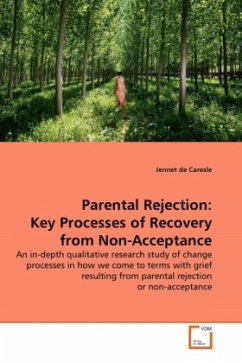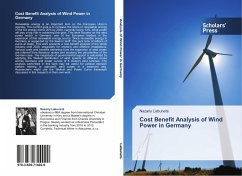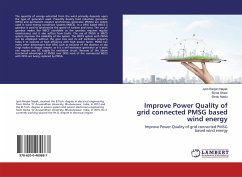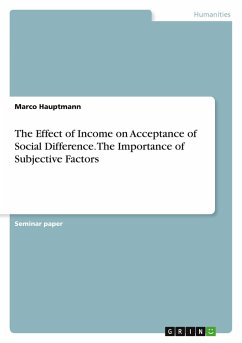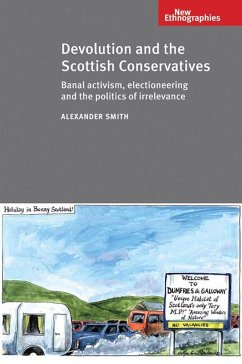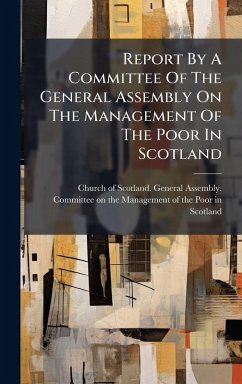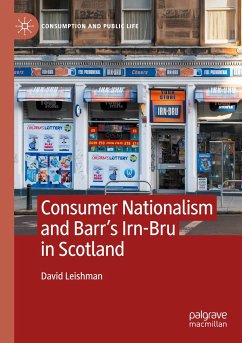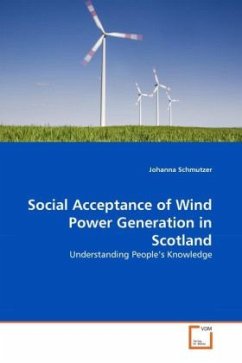
Social Acceptance of Wind Power Generation in Scotland
Understanding People's Knowledge
Versandkostenfrei!
Versandfertig in 6-10 Tagen
32,99 €
inkl. MwSt.

PAYBACK Punkte
16 °P sammeln!
In the fight against climate change, the Scottish Government has a commitment for half of its total electricity consumption to be produced from renewable sources by 2020. The lion's share of the green electricity needed for achieving these very ambitious targets will have to come from wind power. However, recent years show that successfully developing new wind farm sites is far from easy. A certain lack of social acceptance on the local level frequently plays a significant role in this, despite opinion polls indicating an approval rate of over 80% amongst the general public. Explanations for t...
In the fight against climate change, the Scottish Government has a commitment for half of its total electricity consumption to be produced from renewable sources by 2020. The lion's share of the green electricity needed for achieving these very ambitious targets will have to come from wind power. However, recent years show that successfully developing new wind farm sites is far from easy. A certain lack of social acceptance on the local level frequently plays a significant role in this, despite opinion polls indicating an approval rate of over 80% amongst the general public. Explanations for that gap have been sought to help develop recommendations that might facilitate in successfully working with communities to achieve the set climate change targets. Knowledge of wind power generation is sometimes mentioned as a potential factor for people's attitudes towards wind farms in their own communities. However, research on what actual level of knowledge people possess is rather sparseand relies on the personal self-assessment of the respondents. Therefore, this research focuses on an objective way of furthering the understanding of what people in Scotland know on wind power generation.



